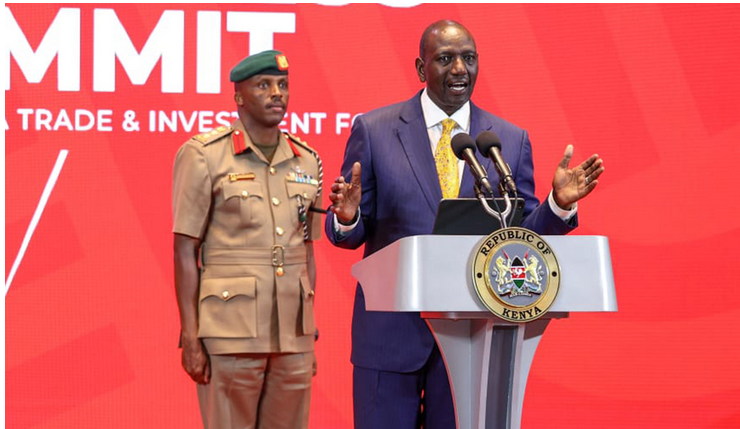Kenyan plans to abolish 1.5 percent levy on digital services, a move that see the country sign up to the global framework on taxing multinationals.
Kenya will join the pact by the Organization for Economic Cooperation and Development (OECD) slated for implementation on January 1, 2024.
Kenyan President William Ruto said the growth of digital commerce has prompted an increasing number of countries to impose digital services tax on income earned within their borders. Kenya, he said, is taking this route.
“Following discussions with players in this sector, we have committed to review this tax regime and align it with the two-pillar solution currently being developed by the OECD inclusive framework,” President Ruto said while speaking at the American Chamber of Commerce Regional Business Summit yesterday.
The former administration led by President Uhuru Kenyatta did not back the global minimum tax rate which required the government to stop collection of the digital services tax from tech giants such as Google, Facebook and Amazon.
Kenya was uneasy with clauses in the agreement which would have seen the end of the 1.5 percent digital service tax.
“Members who join the statement are obliged to withdraw their unilateral measures imposed on non-resident companies which do not have physical presence in the market jurisdiction,” said the then Kenya Revenue Authority Commissioner for Intelligence and Strategic Operations, Terra Saidimu.
The digital services tax which kicked in on January 1, 2021 is drawn from the sale of e-books, movies, music, games and other digital content with KRA projecting collections of up to Sh13.9 billion from the levy inside three years of application.
The taxman had collected Sh174 million from the tax in six months to December which kept it on track to match and surpass the Sh241 million in collections recorded in the year to June 2022 with the KRA registering 178 firms under the tax.
Kenya’s rejection of the OECD minimum tax framework had been a hurdle to the negotiations on the free trade deal between Kenya and the US with the standoff having deemed the prospects for the deal’s conclusion.
The US administration under President Joe Biden had been pushing for the adoption of the global minimum rate of tax on multinationals from which 136 percent representing an estimated 90 percent of global GDP had signed up to.
Kenya, Nigeria and Algeria had been among the top African economies who were yet to back the deal which peers like South Africa, Egypt and Morocco are signatories to.
The minimum tax rate is designed to reduce opportunities for shit profits to low-tax jurisdictions and offshore tax havens which have denied developing economies such as Kenya, billions in tax revenues.





